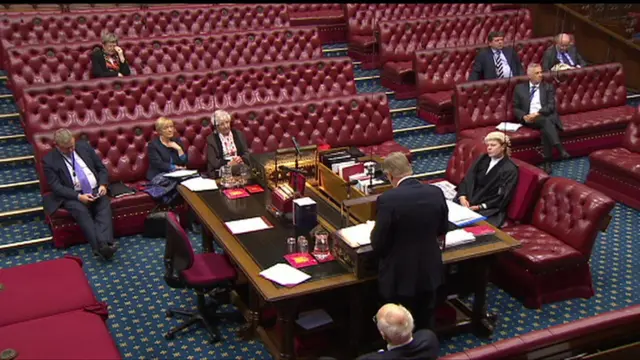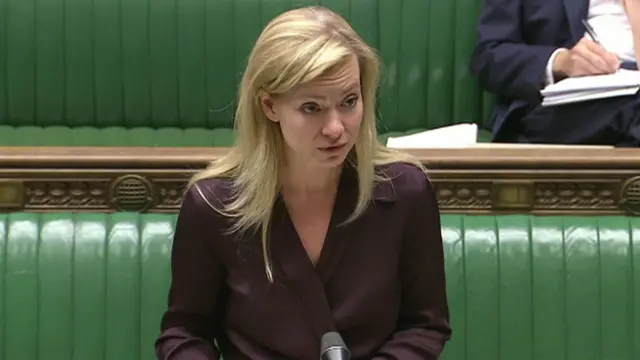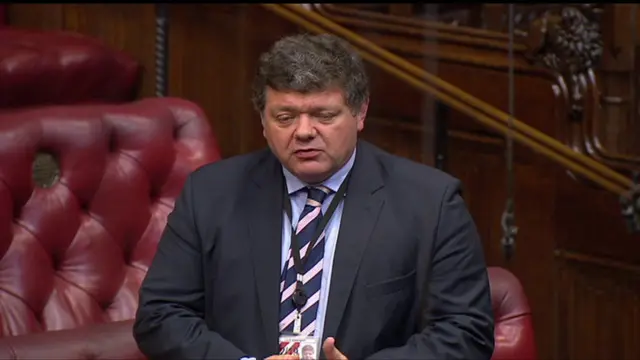How has the economy fared since the Brexit vote?published at 17:20 BST 28 March 2017
With the UK about to trigger Article 50, the BBC looks at how the economy has fared since June 2016.
Read MoreUK GDP rose by larger than expected 0.5% in first quarter after referendum
Labour's John McDonnell warns against a "bankers' Brexit"
News of the World: MPs to debate cases of Colin Myler and Tom Crone
MPs to debate young people's mental health
Alex Hunt and Claire Heald
With the UK about to trigger Article 50, the BBC looks at how the economy has fared since June 2016.
Read MoreWho are the contenders to succeed Diane James as UKIP leader, after her shock resignation 18 days in to the job?
Read MoreDoes the falling value of the pound mean that the UK economy has fallen behind France?
Read MoreScotland will not get a "special deal" on Brexit, the Scottish secretary insists, but there will be "differential" arrangements for some sectors.
Read MoreHere's a summary of the day's political news:
Music and theatre groups may have to scale back European tours after the UK leaves the EU, arts organisations warn.
Read MoreThe only new knowledge that the SNP has gleaned from Westminster meetings on Brexit this week is that the government has a hotline to Brexit Secretary David Davis, Scotland's First Minister Nicola Sturgeon has said.
"Brexit might mean Brexit, but the prime minister couldn’t tell us exactly what that platitude means in practice," she said.
“The only new information we got on Monday was that the UK government has set up what they have called a ‘hotline’ to David Davis.
"I can share with the Chamber today that (the Scottish government's Brexit minister) Michael Russell’s office called that hotline this week.
"He called it just before midday on Tuesday, it took until after 6pm yesterday to actually get David Davis on the hotline, that’s 36 hours. So yes, there is now a telephone line we can call, it’s just currently not very hot.”
So what are the most cutting comments? See which have made the top five political barbs.
There's no mystery inducement behind Nissan's decision to stick with Sunderland, the firm has said.
A senior executive at Nissan Europe, Colin Lawther, said the company had received "no special deal" from the government.
"It's just a commitment from the government to work with the whole of the automotive industry to make sure the whole automotive industry in the UK remains competitive," he told the BBC.
"We would expect nothing for us that the rest of the industry wouldn't be able to have access to. We see this as a whole industry thing, not a Nissan thing."
Mr Lawther said there was "a massive basket of unknowns" from triggering Article 50 to the end of the Brexit process so "it's not really productive for us to speculate on what could happen".
"We just trust that the government will work through diligently to make sure that, as a whole industry, we end up competitive in the final noggins."
Dr Peter Bull on the 35 ways politicians avoid directly answering interview questions - after Business Secretary Greg Clark refused to say whether Nissan was offered a one-off inducement deal.
Baroness Tonge has had her Liberal Democrat membership suspended after chairing a meeting which was criticised by the Israeli embassy as "shameful".
The former Lib Dem MP sits as an independent in the Lords but was still a member of the party.
She chaired the event in the Lords run by the Palestinian Return Centre and streamed on its Facebook page.
A Liberal Democrats spokesman said: "She has been suspended. She was not a member of our group in the House of Lords, she was an independent peer, she has had her membership suspended."
"We take her comments very seriously and have acted accordingly."
The comments have sparked widespread anger among MPs.
Any government deal with Nissan over its plans to invest in Sunderland production must be made public, Jeremy Corbyn has said.
On a visit to Blackburn to see motor mechanic apprentices he said if there were any inducements to the firm they would come from public money, adding: "If you are offering big inducements to one industry or one manufacturer, then all the others will quite reasonably say, ‘Well, what about us?’
"We don’t know what the terms of the agreement are between Nissan and the government.
"I’m pleased there’s going to be continued investment in Sunderland that protects those jobs and obviously helps to develop manufacturing industry, but the concerns are still there.
"We have to have market access in Europe in order to keep British engineering industries going."
Branwen Jeffreys
Education Editor
Plans for an education bill, which initially would have seen all schools in England compelled to become academies, have been dropped.
The Cameron government announced the plans in March but backed down from them in May after widespread protests from councils.
The current government has confirmed the withdrawal in a statement to parliament.
The move clears the way for draft plans to be brought forward including Theresa May's proposals for more grammar schools in England.
Lord Nash, the education minister said in a statement: "Our ambition remains that all schools should benefit from the freedom and autonomy that academy status brings.
"Our focus, however, is on building capacity in the system and encouraging schools to convert voluntarily.
"No changes to legislation are required for these purposes and therefore we do not require wider education legislation in this session to make progress on our ambitious education agenda."
Social mobility debate
 House of Lords
House of Lords
Parliament
Education Minister Lord Nash defends the government's grammar school policy, which came under attack from several speakers earlier in the debate.
Grammars, he says, "have a track record of closing the attainment gap and adding value for disadvantaged children, even those who don't attend them".
But grammar schools currently admit too few disadvantaged pupils he says, and the government's policy is "not about a return to the binary system of old".

 House of Commons
House of Commons
Parliament

Health Minister Nicola Blackwood says the Youth Select Committee's mental health report is "an important and timely intervention".
She pays tribute to the young people who have spoken about their own mental health problems and who have allowed MPs to talk about them.
Ms Blackwood says NHS England has been mandated "to strive to reduce the health gap" in areas including learning disabilities and autism.
She is pressed by Labour to confirm whether there will be sanctions against clinical commissioning groups who do not allocate the extra funding. Ms Blackwood says she has been "clear" that funding needs to increase and performance "can be tracked locally".
She says she accepts the report's recommendation that work "across government" with the department for education is needed.
Conservative peer Patience Wheatcroft, the Daily Telegraph's Liam Halligan and Labour peer Margaret Prosser look at the UK's economic figures after the Brexit vote.
Former cabinet member and Brexit campaigner Michael Gove says the government is doing "well" so far in its handing of the path towards leaving the EU.
The Daily Politics mood box gets views on issues in the Richmond Park by-election.
Baroness Wheatcroft said some in the House of Lords want a Parliamentary vote on Brexit.
Social mobility debate
 House of Lords
House of Lords
Parliament

Lib Dem Lord Addington raises the issue of special educational needs as a prevention for social mobility.
He asks whether in understanding the pressure faced by young people to attain and "jump through hoops" in order to obtain the better things in life "are we identifying all the things that might slow you down?"
The Liberal Democrat peer tells the chamber that "we are not equipping our educators" with the ability to identify those with different learning patterns.